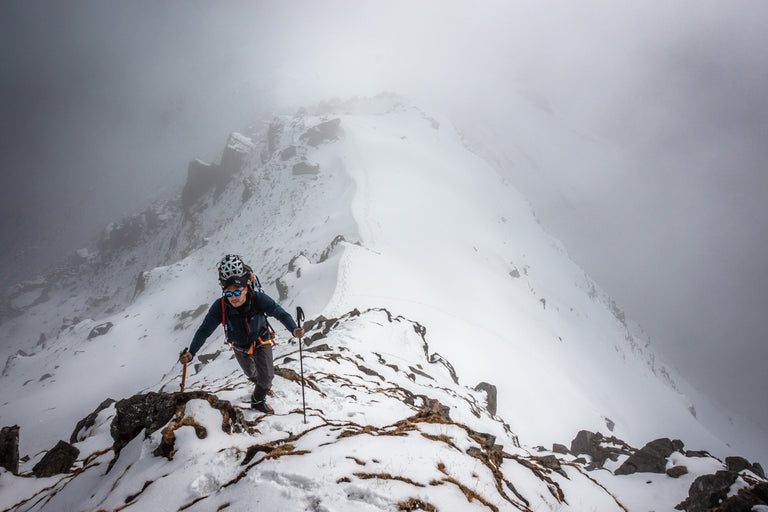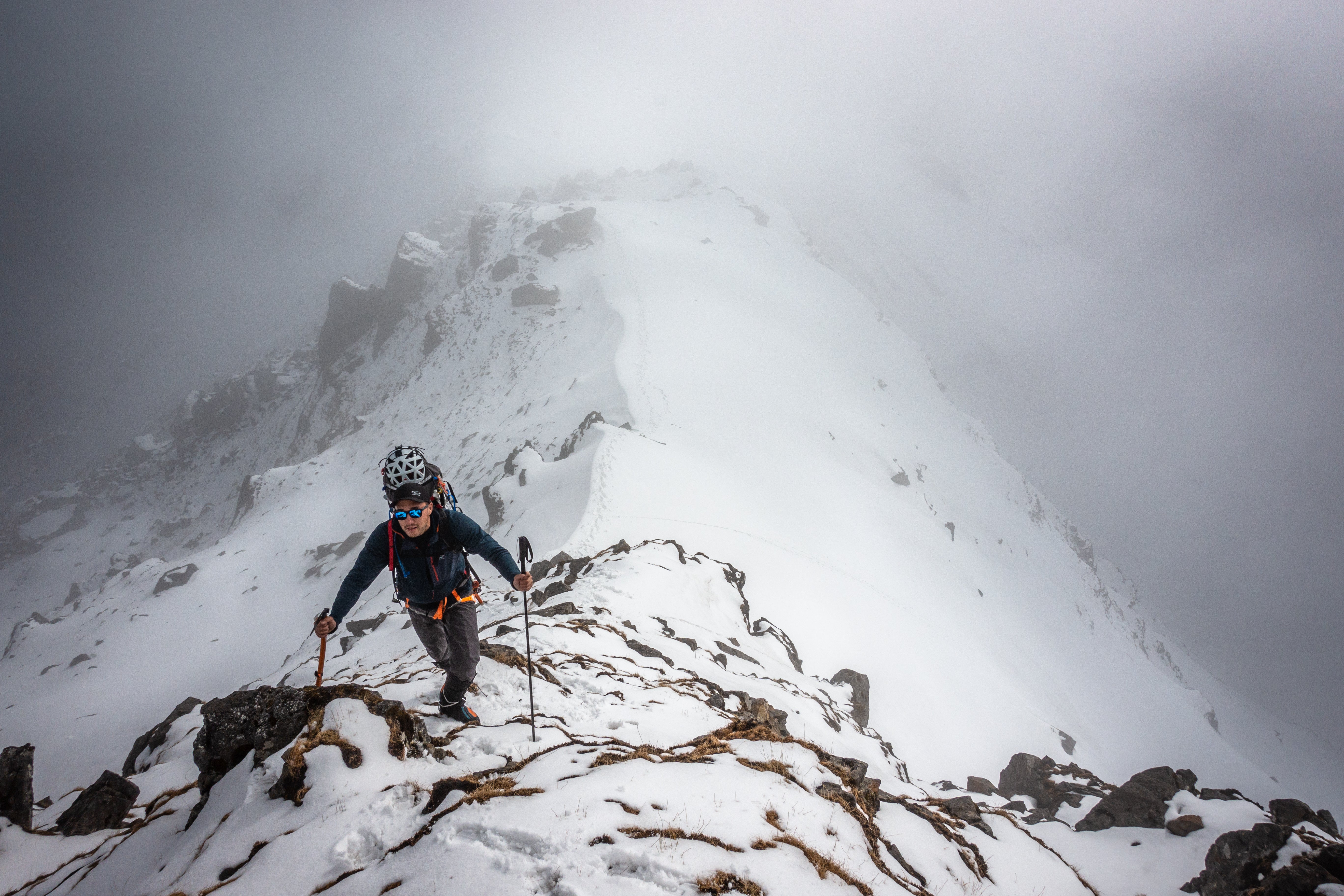As a lifelong athlete with a diverse background in sports, training, and the outdoors, Jason Antin will share his philosophy on cross-training for mountain sports. Jason enjoys moving quickly in the mountains over a variety of mediums utilizing a variety of skills. During this clinic, Jason will discuss reasons why he values cross-training in preparation for some of his most memorable outdoor achievements and how you can integrate his strategy into your own goal oriented training.
In This Clinic
- What is Cross-training?
- Physiological Benefits of Cross-training
- Psychological Component of Training
- Role of the Mind in Sports
- How to Cross-train
What is Cross-training?
An activity that supports the primary performance through improved cardiovascular ability, increased mobility, muscular strength or expedited recovery. In short, it's any sort of activity that's going to make you perform better in the long run.Physiological Benefits of Cross-training
Durability
When you cross-train, you can implement different activities that are going to train your body in different ways that will complement your sport or your objectives - giving yourself a chance to be less prone to injury and less prone to overuse setbacks.
increased Aerobic Activity
When you are training your muscle fibers in a different way to be more efficient - you're going to achieve just that by training your muscle fibers to respond in different ways than you might normally be using them through your primary sport or activity.
Corrected Imbalances
There with a lot of folks that are constantly doing pulling exercises and they're gonna see some significant imbalances with regards to pulling versus pushing muscles. A big component of cross-training is the ability to balance out your body in other words you're going to be correcting these imbalances by making the weaker parts of your body a little bit stronger.Injury reduction & prevention
When you spend time cross-training, you're going to significantly reduce your chance of encountering some of these overuse injuries. Additionally when you get tired when you get fatigued out there - you can let your guard down and you may have to rely on a muscle group that is not the primary muscle group needed in your sport and therefore by cross-training you're preparing yourself to handle the off-axis load that you might encounter during any time you're out there on an objective or other training.unilateral vs. lateral
Cross-training is going to prepare you to handle that off axis load or off axis movement. Lateral ability to move your body to be agile so a massive piece of the physiological cross-training puzzle.
Body composition
You may want to alter what your body actually looks like and what your strength/weight ratio is. Cross-training helps you tailor your body to potentially perform better at your your goal sport or objective.
muscular strength / endurance
By embarking on a variety of different activities that are not your primary sport you're going to contribute to both muscular strength and muscular endurance which in the long run will allow you to not only have increased aerobic capacity but perform better at your goal.
mobility
Whether you see that as flexibility or your your own ability to move your body your limbs in a variety of directions - mobility is incredibly important.
Psychological Component of Training
Cross-training is Massive Contributor to the Mental Game
- Improved mental performance during objective.
- Mind Durability, Mobility, Endurance & Flexibility
- Motivation throughout
- Avoid Burnout
The Role of the Mind in (MTN) Sports
By embarking on a variety of different activities that are not your sport or not your activity - you're going to be have improved mental performance during your objective, which is why you may need to train to be out there longer than your end goal. You may need to train to be performing in a different environment that you may someday find yourself in - just like physical durability, physical mobility, physical endurance physical flexibility - your mind can adapt and become those same things. You need to work to make your mind durable you need to make your mind more mobile and you need to be able to endure longer outings regardless of what your sport is.Why Does this matter in the Mountains?
Traveling in the mountains requires you to be extra strong and extra durable on a variety of planes. You can't train for just that one sport in just that one direction, so cross training allows you to prepare for a variety of instances a variety of environments - all of which are incredibly common to all different sorts of of mountain sports and mountain athletes. Whether you're a trail runner, a skier, a climber - you need to be prepared to move in a variety of of environments and in a variety of directions. Crosstraining is really going to benefit you there but the mind is the most relevant and important tool in the mountains.
How to Cross-train
- Define your performance level/objective
- Identify your weakness and imbalances
- Determine how cross training will help your goal
- Assess risk vs. reward of mountain cross-training


